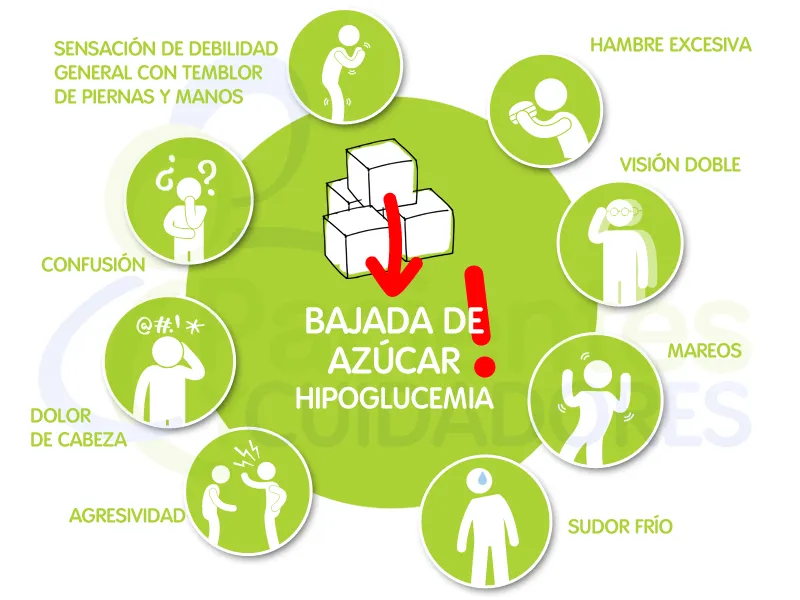The goal of diabetes treatment is to control the concentration of blood sugar.However, it is common for people to emphasize more to prevent a drastic increase in glycemia, because those who present this pathology lack insulin production and have difficulty metabolizing glucose.Additionally, it is also essential to prevent radical descents that can lead to hypoglycemia.
Hypoglycemia is a frequent disorder in diabetic people subject to insulin therapies.It occurs when blood glucose levels are less than 70 mg/dl;When blood glucose values are less than 55 mg/dl, serious risk is run.
Within the framework of the XVI Venezuelan Congress of Endocrinology and Metabolism, the Scottish endocrinologist, Diabetes Specialist, Brian Frier, shared his knowledge about this alteration, in which he pointed out that among the symptoms that arise are sweating, tremor or spasms,Palpitations and state of confusion.A drastic descent in blood sugar levels can also interfere with the development of daily activities such as driving, since the person can lose consciousness and cause accidents with serious consequences.
The doctor pointed out that "patients usually have an alert for the typical symptoms of hypoglycemia, however when this condition advances more severely and the person loses knowledge, the injected administration of a high glucose dose is necessary for theBrain can continue to function.
Dr. Frier, who has developed various studies on the pathophysiology of hypoglycemia, also referred to cases in which the patient does not present symptoms, which is more common in those who have been under insulin treatments for long periods or constantly present levelsLow glucose in the blood.This condition is known as inadvertent hypoglycemia.In these cases, the risk of severe hypoglycemia is greater, since the person, losing the ability to perceive the symptoms of hypoglycemia, is not treated in a timely manner, and can progress towards the loss of knowledge, coma andseizures
Preventing is the best option
The endocrinology expert said that the best way to prevent hypoglycemia is frequently reviewing sugar levels.In case the symptoms are presented and I do not know
They can review the sugar levels, the patient should be treated as soon as possible, since this prevents severe sequels from being presented.On the other hand, said action will have no important or lasting consequence in case the diagnosis has been wrong.
It is important to consume foods that provide glucose regularly, avoid prolonged fasting and make diet settings that allow the inclusion of foods containing complex carbohydrates;When performing exercises, make sure you have snacks with them.
It is not advisable to ingest alcohol without eating.If you have diabetes, it should be
Always carry a bracelet or medical alert necklace;This helps the personnel who attend medical emergencies to provide the type of care that it requires.
"It is necessary that the patient be educated about the symptoms of hypoglycemia and the condition they suffer, since the symptomatology can vary according to racial and age characteristics, in order to improve knowledge and care skillsof diabetes and theirconsequences, training them to assume control and integrate the management of the disease into everyday life?, the specialist concluded.


